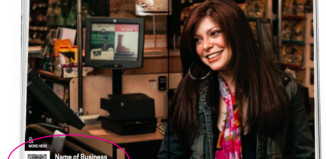(COMERICA BANK VICE PRESIDENT AND MANAGER OF COMERICA’S ANDERSON –BURNET LN. FULL-SERVICE BANKING CENTER IN AUSTIN)
Given today’s current economic climate, it is very easy to turn to credit cards to pay for daily necessities when cash is scarce. Don’t do it. Studies show the average amount of household credit card debt was up 25 percent from 2000 to 2009. Recently, overall debt has started to decline as consumers strive to reduce the amount of debt they have on their personal balance sheet. One of the best ways to boost your credit score is to start reducing your credit card debt.
Credit card debt is extremely easy to accumulate and can be difficult to eliminate. Before you charge anything, make sure you have the funds to pay for it. Setting up a budget and eliminating the number of credit cards you have are great ways to prevent additional debt.
Preventing debt takes planning. The following tips will help you avoid getting in trouble with your credit cards. If you are already facing debt, these tips can also help you reverse the problem.
Create A Budget
Before you spend or charge anything, you need to know what your finite expenses are each month. After you calculate your cost of living (rent/mortgage, groceries, bills) evaluate how much is left over. Paying the balance on all your cards each month should be your goal. if the money isn’t in your budget, don’t continue to spend. A clear sign that you are in trouble with managing your credit cards is if you can only pay the minimum each month.
Have Only One Or Two Cards (And Make One Of Them Your Debit Card)
It’s a pretty simple concept: the fewer cards you have, the less trouble you can get into. It is easier to keep track of your spending with one or two cards versus five or 10. Unless you are able to lock in a zero percent interest rate or a permanent lower interest rate, don’t transfer balances between credit cards. No matter what, make sure you keep your balances lower than 50% of your available credit line or else it will put a dent in your credit score. debit cards are great tools as the money comes directly from your checking account and is accepted just like a credit card–a great way to help you maintain that budget you are working within.
Only Buy What You Can Afford
If you don’t have the money to back up a purchase, don’t buy it. Credit cards are not mini-loans. This goes back to budgeting. If there is a nonessential item you want, start saving for it. Don’t charge it and accrue debt/interest on it. If you find yourself in an emergency situation such as health issues or an emergency home/auto repair, charge the expense but create a payment plan to eliminate your debt in a matter of months.
Pay On Time
One late payment can negatively impact your credit score. A simple way to pay less is to pay on time. Even if you are paying the minimum amount, you will not face additional charges or increased interest rates, which are tantamount to throwing your money away. The goal is to chip away at the principle. Overdue fees eliminate this possibility.
Pay Off High Interest Rates First
When you are trying to pay down debt and you have multiple cards, make sure you pay down your highest interest rates first. That way you are paying less interest in the long run. Make minimum payments to your other cards and focus on paying off one card at a time. The satisfaction you get from paying off one will have a spiral effect, motivating you to pay off the next and so forth until you are debt free. Also, after paying off a card cut it up. Keep only one or two and ditch the rest.
Spend At Your Income Level, Not At Your Partner’s
As in all new relationships, be sure you discuss finances early on. You may be in different income ranges and have different spending habits, but if your significant other spends more than you are comfortable with, tell her/him early on in the relationship. The last thing you want to do is rack up credit card bills and begin your relationship with debt, or end your relationship and have only the debt to show for it.


































